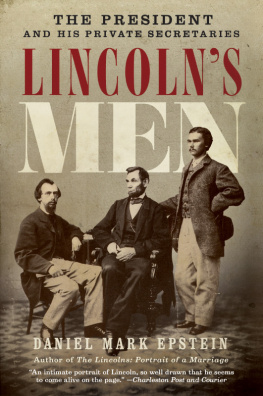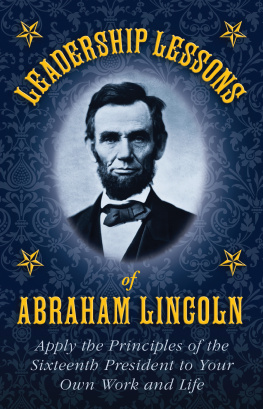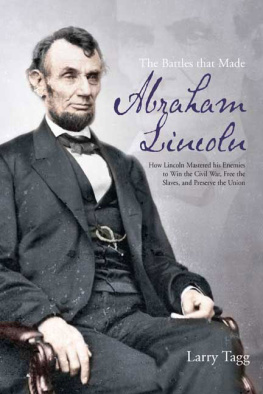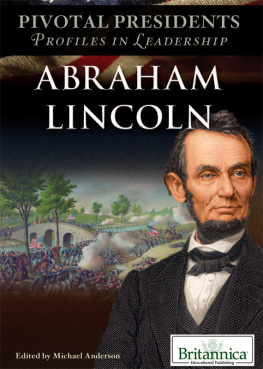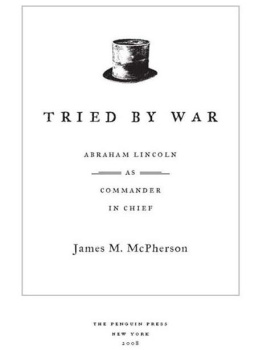About the Author
Walter Berns is a professor emeritus at Georgetown University and a resident scholar at the American Enterprise Institute. He has taught at the University of Toronto, the University of Chicago (where he earned a PhD in political science), and Cornell and Yale universities. His government service includes membership on the National Council on the Humanities, the Council of Scholars in the Library of Congress, and the Judicial Fellows Commission, and in 1983 he was the alternate United States representative to the United Nations Commission on Human Rights. He has been a Guggenheim, Rockefeller, and Fulbright Fellow and a Phi Beta Kappa lecturer. He is the author of numerous articles on American government and politics in both professional and popular journals; his many books include In Defense of Liberal Democracy , The First Amendment and the Future of American Democracy , Taking the Constitution Seriously , Making Patriots , and Democracy and the Constitution . President George W. Bush awarded him the 2005 National Humanities Medal for his scholarship on the history of the Constitution.
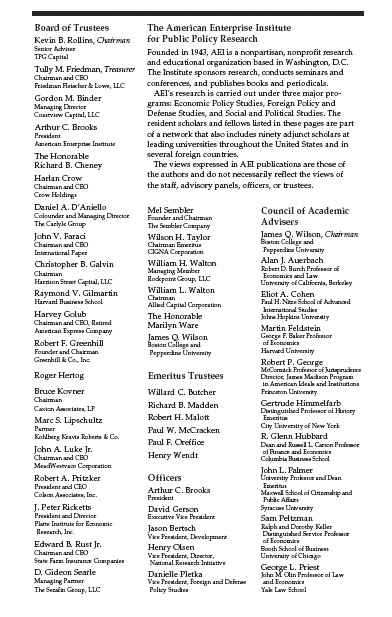
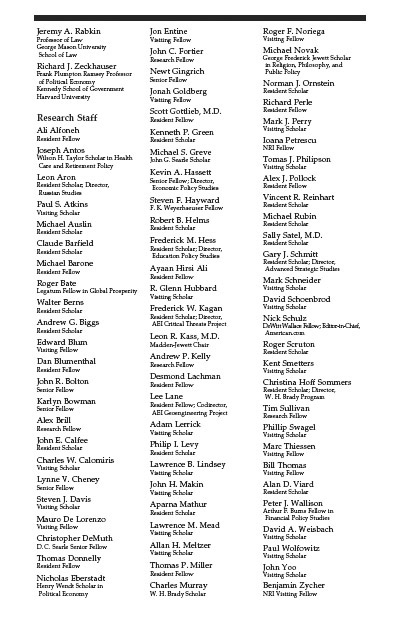
Lincoln at Two Hundred
Why We Still Read the Sixteenth President
Walter Berns
More has been written about Abraham Lincoln than about any other president or, for that matter, any other American. The amount is prodigious: no fewer than 16,000 books and goodness knows how many journal articles. I cannot claim to have read more than a portion of this vast literature, and I very much doubt that I can say anything about Lincoln that has not already been said by someone, somewhere, sometime. Yet I am obliged to say something.
What accounts for the extraordinary interest in him? Well, he was an extraordinary man; he did things ordinary men dont do. For example, Lincolns law partner reports how, while the other lawyers on circuit and the circuit judge were asleep, Lincoln would lie on the floor, with a lamp, studying Euclids Elements , the geometry book which begins with definitionse.g., a point is that which has no part, followed by postulates and axioms, and then (and finally) by propositions, two sorts of propositions: problems and theorems. These propositions have then to be demonstrated, which is done diagrammatically, showing, in the one case, that the problem is solved, and, in the second, that the theorem is true.
All very interesting, and for some purposes, very importantthe Elements is part of the Great Books curriculum; indeed, for almost two thousand years (until Descartes), Euclid was geometrybut what has it to do with the practice of law in Illinois in the 1840s? My point is, only an unusual intellectual curiosity could have led a backwoods lawyer to pick up Euclids Elements and proceed to master it. Lincoln was different, and he had to know it.
Imagine, if you will, what it was like for this man to live in a place like New Salem, Illinois, in the 1830s, a town without books, without civilization, without anyone like himself with whom he might talk. Springfield, where he moved in 1837, was not much better. Yet, in both places, something drove him to get his hands on books, not only Euclids geometry, but history, grammar, Shakespeare, and poetry.
Lincoln was an avid reader of poetry, beginning with the poems of Scotlands Robert Burns and continuing with those of Englands George Gordon, Lord Byron. He started this reading in New Salem and Springfield and continued it in the White House, where he could get books from the Library of Congress. But what has My Hearts in the Highlands to do with the relief or provisioning of Fort Sumter? And what has Byrons Don Juan to do with emancipating slaves? Perhaps the best known passage in Don Juan is this: A little still she strove, and much repented, and whispering I will neer consentconsented. What has this to do with any of the problems that crossed Lincolns White House desk? Nothing at all, of course. I mention it only because it tells us something about the sort of man he was. He also read the Bible, and seems to have known it well.
Burns, Byron, Bible: no one going to school with them is likely to have a tin ear. This was surely true of Lincoln. Their influence on him was evident, not in what he said, but in how he said itin the rhythm or music of his speech. Ill have more to say about this in due course.

Lincoln was, of course, president in an extraordinary time, but so were Woodrow Wilson and Franklin D. Roosevelt. He was assassinated while in office, but so were James Garfield, William McKinley, and John F. Kennedy. Admittedly, there was something unusual or special about Lincolns assassination. There was something profoundly political about it, and Lincoln may have foreseen it; he surely had forebodings of it. For example, he had the habit of quoting these words from Shakespeares King Richard the Second : For Gods sake, let us sit upon the ground And tell sad stories of the death of kings.... all murderd. What should one make of this?
Senator Charles Sumner reportedand so did the French diplomat the Marquis de Chambrunthat, upon returning from Richmond and a visit with General Grant the day before General Robert E. Lees surrender at Appomattox, and knowing that the war was effectively over, Lincoln twice recited the following lines from Shakespeares Macbeth :
Duncan is in his grave;
After lifes fitful fever, he sleeps well;
Treason has done his worst; nor steel, nor poison,
Malice domestic, foreign levy, nothing
Can touch him further.
Apparently, Lincoln saw himself as Duncan. Sumner thought so. If not, why did he quote this passage, not once, but twice, and at this time? ( Macbeth was Lincolns favorite play. As he said to a well-known Shakespearean actor, Nothing equals Macbeth , it is wonderful.)
Of course, Lincoln did great things, greater than anything done by Wilson or Roosevelt, or by Garfield, McKinley, or Kennedy; he freed the slaves and saved the Union, and because he saved the Union, he was able to free the slaves.
Beyond this, however, it seems to me that our extraordinary interest in him, and esteem for him, has to do with what he said, and how he said it. And much of this had to do with the Union: what it was and why it was worth the saving.

Lincoln saved the Union by fighting and winning the war, of course; but his initial step was the decision to go to war in the first place. This was not a popular decision, and certainly not an easy one. His predecessor, the incompetent fool James Buchanan, believed that the states had no right to secede from the Union, but that there was nothing he could do about it if they did. Or, as Senator William H. Seward put ithe was commenting on Buchanans last Message to Congress on December 3, 1860the states had no right to secede, unless they wanted to, and the president had the duty to enforce the law, unless someone opposed him. Thus, by the time Lincoln took office, seven southern states had seceded, and nothing had been done about itnothing about their seizure of federal forts, arsenals, and naval facilities. Six of those states had formed a new government, with a constitution, a congress and president; they were, as we say, in business. Led by South Carolina, they claimed to be doing only what they and the other colonies had done in 1776, and, on the whole, Buchanan agreed with them. Besides, to oppose them would probably bring on the war, and Buchanan had no stomach for that. As president, he had sworn an oath to preserve, protect, and defend the Constitution of the United States, and to this end, he was given the powers of commander-in-chief. Yet he was the last man to use them.


